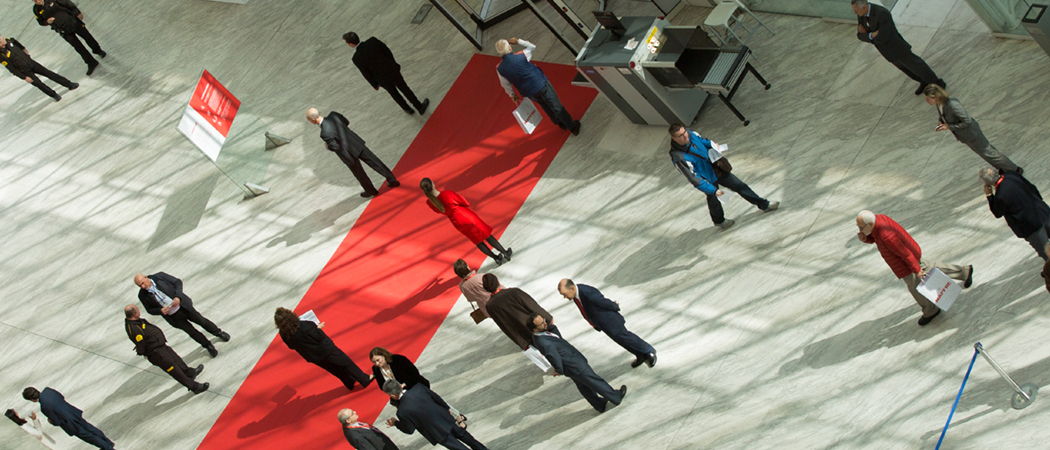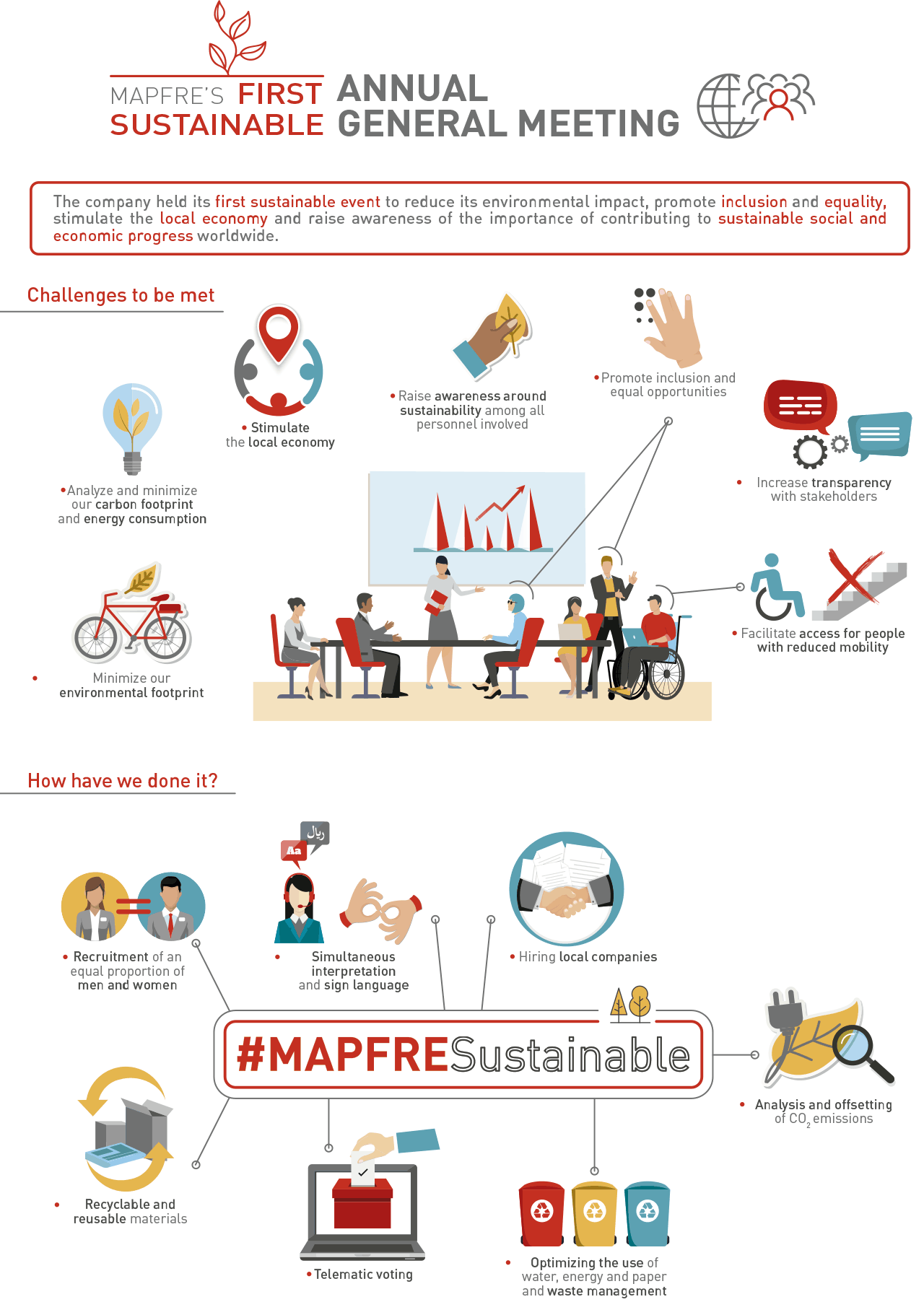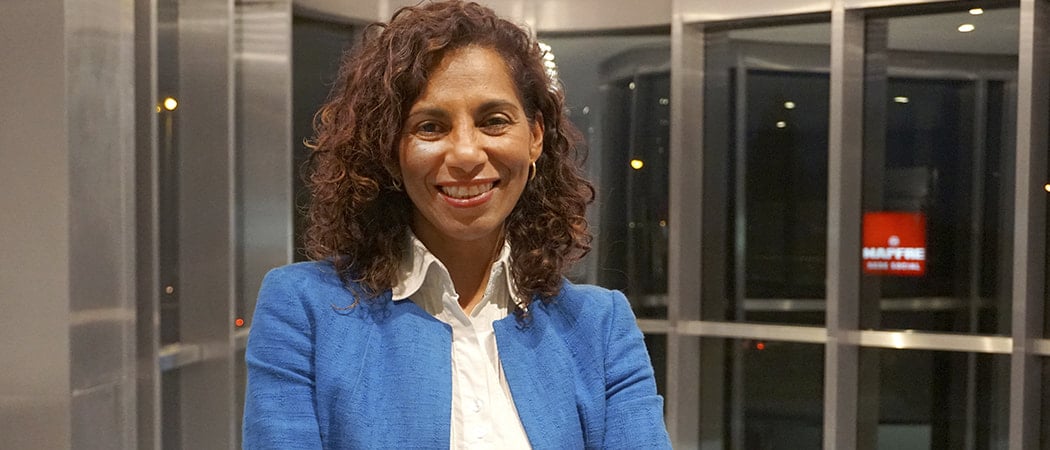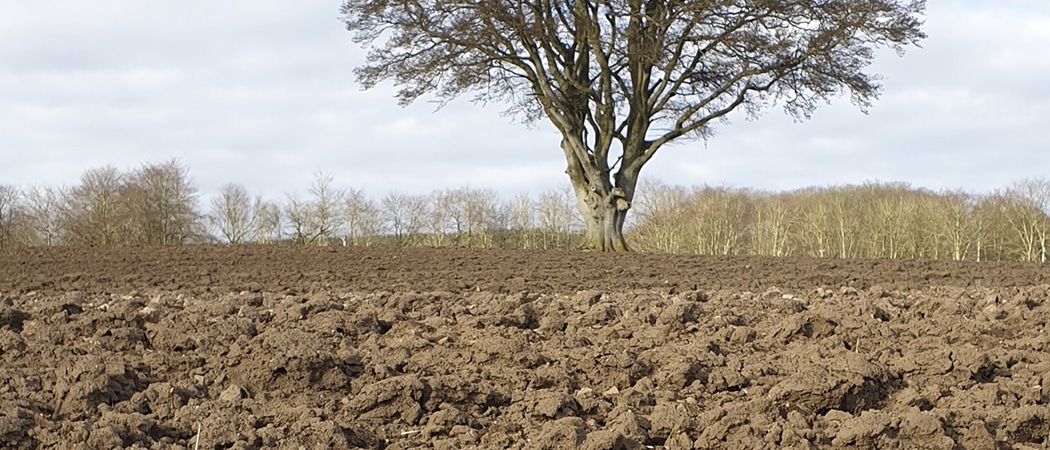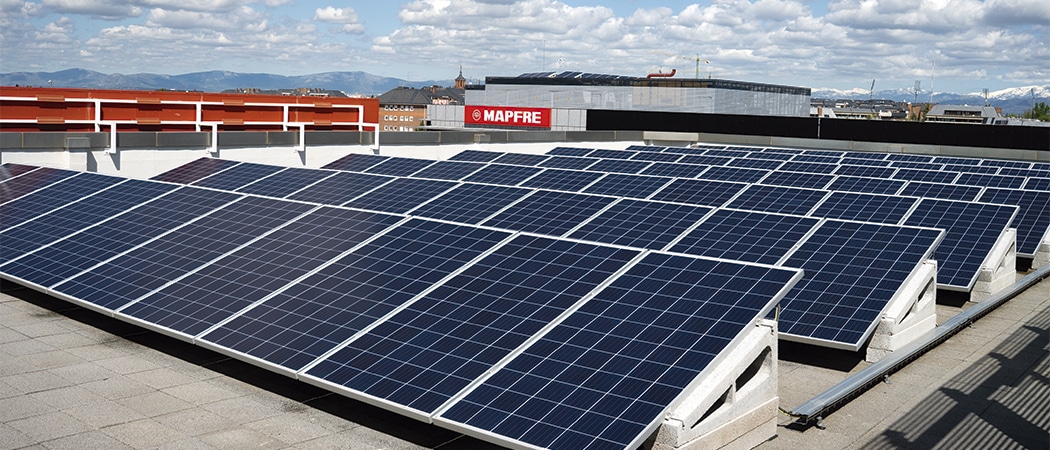TEXT NURIA DEL OLMO | PHOTOS ALBERTO CARRASCO
Save energy and water, reduce CO2 emissions, and hire people with disabilities and local providers. These are some of the goals pursued by companies committed to organizing sustainable events. We are referring to congresses, seminars and even festivals which, thanks to this philosophy, help reduce their environmental impact, promote inclusion and equality, boost the local economy and raise society’s awareness of the importance of driving social and economic progress. MAPFRE has done just this on the occasion of its first sustainable AGM. We tell you all about these kinds of events and what benefits they offer.
The hall was the same, but Luis soon realized that the stage was decorated with huge volumes of spandex, onto which video was displayed – a technique known as projection mapping – to create the backdrop, which would allow the materials to be reused at the following year’s convention. When lunchtime arrived, Luis also noticed changes. Unlike the habitual chunk of beef sirloin steak, there was a small note on each table explaining the use of seasonal products produced in the vicinity of the event’s location. It also pointed out that they had opted for a catering company with certified responsible behavior in relation to waste management, energy savings, and good procurement and hiring practices.
For the convention, the company had also made a special effort to convey messages to all attendees, highlighting the importance of protecting the environment and caring for society as a whole. Moreover, it had designed a plan to consume as little energy as possible and calculate the carbon footprint of the event, i.e. determine the emissions of all the greenhouse gases (GHGs) related to energy consumption, mobility and waste generation. That weekend, Luis and a further 100 work colleagues went on an outing to the mountains outside Madrid to plant trees and thus offset the CO2 emitted throughout the event.
This kind of event represents a true commitment to people. Men and women are hired without discrimination, taking on board people from groups at risk of social exclusion and people with disabilities
Events with kudos
Companies that decide to organize an event in a sustainable manner clearly demonstrate a firm commitment to many aspects, ranging from equal opportunities to full social inclusion and protecting the environment. It also reinforces transparency and considers the stakeholders relevant actors. This is a task that takes months of effort and calls for great planning and coordination in order to be able to meet demanding objectives and actions in all its phases. This work must be evaluated and audited before, during and after the event.
This is the view of José Magro, Sustainability director at AENOR, a certification entity that helps organizations review their good practices in such areas as quality, environment and social responsibility. It has just certified MAPFRE’s first sustainable event – its 2020 Annual General Meeting. Magro states that companies which organize these events manage to minimize a great deal of the environmental impact generated on such occasions, like the generation of waste, high consumption of resources (water and electricity) and air, noise and light pollution. They also encourage the use of public transport and the bicycle for getting to the venue, facilitate access for people with reduced mobility and opt for the use of fair trade products and others sourced close to the location of the event, something which certainly helps reduce the impact attributable to transportation.
Raising awareness in society
This is a key requirement right from the start, as it entails talking to stakeholders proactively to find out what they expect from the event, what impact it could have and what opportunities could be generated, a fundamental factor when it comes embracing certain actions and, even, new business models. In this regard, AENOR’s Sustainability Director believes that getting feedback is essential for meaningful planning and ensuring no one is left out. “Communication also has a part to play at the end. A sustainable event involves great effort and commitment that must be communicated to society. We believe it is most important that companies which organize these kinds of events and meetings convey these values to those attending and participating. They should be proud of all the good environmental, social and economic practices they have set in motion and be fully aware of the benefit this implies for the planet as a whole. A sustainable event must become an example to be followed by many,” he affirms.
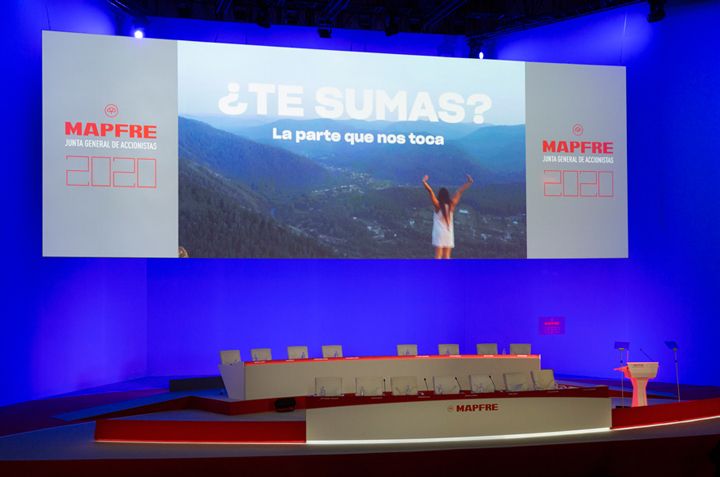
A sustainable event must become an example to be followed by many and must be communicated to all stakeholder groups.
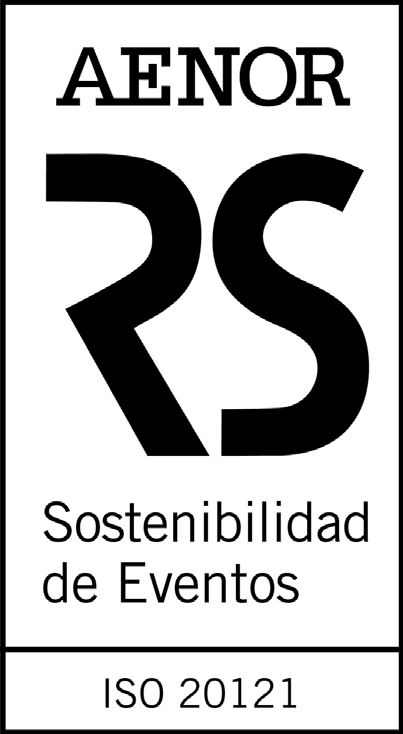
MAPFRE’s first sustainable event
For the first time, MAPFRE’s Annual General Meeting, held on March 13 in Madrid, was certified as a sustainable event. This means that every process of this event – from its planning right through to dismantling the venue after the event – was carried out with the aim of maximizing its contribution to the local economy, improving society and protecting the environment.
MAPFRE thus became the first insurer in Spain to obtain AENOR certification, and the fifth IBEX 35 company to comply with ISO 20121, a voluntary international standard for sustainable event management.
Among its main benefits, this certification promotes social inclusion, which was achieved by offering simultaneous translation and sign language interpretation. Equal opportunities were also promoted by hiring the same number of men and women to worked as support staff in the organization of the event, and barrier-free access was facilitated to assist people with reduced mobility.
Another relevant objective for this event was to minimize the environmental footprint. This was made possible by optimizing the consumption of resources such as water, energy and paper, as well as through the use of recyclable and reusable materials, and adequate waste management. Important aspects also taken into account included transparency with stakeholders, which was intensified through the promotion of electronic voting, and boosting the local economy by contracting the services of local businesses.
Carbon neutral event
Achieving carbon neutrality for the event was also one of the most significant challenges surrounding the event. For the second year running, MAPFRE obtained the CO2 Offsetting Environmental Certificate. The company calculated its carbon footprint according to the ISO 14064 methodology. The resulting emissions were offset by Emission Reduction Certificates (ERCs) issued by the United Nations, thanks to a project designed to provide renewable electric power through the construction of three small hydroelectric plants (SHPs) installed in Brazil.
Casos de éxito
Iberdrola
Las empresas del Ibex son las que más eventos sostenibles realizan. Una de las entidades pioneras en este campo es Iberdrola, que en 2016 se convirtió en la primera empresa del Ibex 35 en obtener la certificación de evento sostenible con motivo de la celebración de su junta general de accionistas. La compañía eléctrica, que el año pasado renovó por tres años dicha certificación, llevó a cabo más de 80 acciones concretas, como la contratación de personas en situación de vulnerabilidad, garantizó la accesibilidad de los colectivos con diferentes capacidades —a través de bucles magnéticos para mejorar la audición—, fomentó el transporte sostenible poniendo a disposición de la ciudad de Bilbao el tranvía de forma gratuita durante el día del evento, y compensó las emisiones de CO2 derivadas de la celebración de la junta general.
Telefónica
También Telefónica y Acciona, dos de las empresas más comprometidas con la sostenibilidad, celebran eventos de forma sostenible como una muestra más de su gestión responsable, establecen objetivos de desarrollo sostenible de eventos, en línea con el compromiso de mejora continua, y tienen en cuenta las partes interesadas relevantes y los usuarios finales a la hora de diseñar los eventos. La operadora española, por ejemplo, celebra convenciones en lugares donde se accede prioritariamente en transporte público y colectivo, incluye medidas de eficiencia energética y de minimización del consumo de recursos como el papel; cuida la gestión de los residuos, con separación y reutilización de los materiales, y da prioridad a proveedores locales.
En 2012, Acciona recibió el galardón de oro al Mejor Evento Sostenible de Europa, concedido al Día de la Música. Para lograr convertirse en el primer festival español ‘neutro en carbono’, Acciona Producciones y Diseño creó e implantó un plan de producción sostenible que incluía medidas como el diseño de un escenario autosuficiente energéticamente, cálculo de la huella de carbono, gestión selectiva de residuos, elección de un catering de comercio justo y comida ecológica y fomento del coche compartido.

